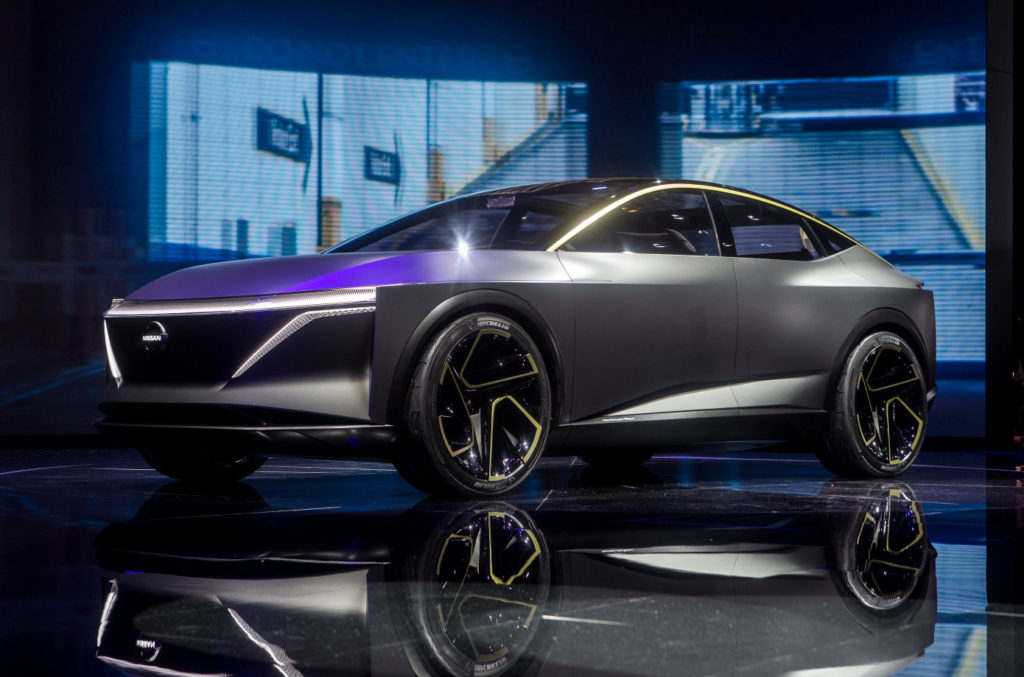Read The Full Article On: Benzinga
This story is the second of a two-part look at China’s electric vehicle market. Read part one here.
Here’s a look at Nio, a homegrown electric vehicle startup with ADSs listed in the U.S.; another domestic player, Xpeng, which is reportedly eyeing a U.S. listing; and Tesla, which is nurturing a strong Chinese ambitions.
Nio: A Homegrown Contender
Nio, or Weilai in Chinese, meaning “Blue Sky Coming,” was founded as Nextev in 2014. It took on its current nameplate in July 2017.
Nio’s Models
Own the Top-Performing Breakout Stock Every Month?
We all want to own breakout stocks every month. The only problem is finding them takes too long. Until now. Benzinga’s Breakout Opportunity Letter sends you the name and ticker symbol of a breakout stock every month. Best of all, you can subscribe today with a special introductory offer.
- EP9 – launched in 2016
- ES8 – first volume-manufactured EV, unveiled in December 2017 and made available to the public in June 2018
- ES6: launched in December 2018; deliveries began in June 2019
- EC6: This model was unveiled to the public Dec. 28 and will be made available in September 2020.
The ES6 comes in three variants and is priced between 358,000 yuan to 468,000 yuan. It has an intelligent e-AWD system consisting of a 160kw PM motor and a 240kW induction motor. The ideal NEDC estimated range with a 100kWh battery is 610km.
Nio uses a combination of marketing methods. It sells vehicles through its own sales network, including NIO Houses, NIO Spaces and its mobile app. Nio Spaces are showrooms for its vehicles, while the Nio Houses serve not only as showrooms but also as clubhouses for customers.
Nio has a manufacturing cooperation agreement with state-owned automaker JAC. The cash-strapped company entered into a collaboration agreement with the municipal government of Hefei, in Anhui province, where its main manufacturing hub is located.
The company has also struck a deal with a consortium of Hefei Strategic investors, for a 7-billion-yuan cash infusion into Nio China. Pursuant to this deal, Nio will hold about 75.9% of Nio China, while the remainder will be held by the Hefei Strategic investors.
Nio Deliveries
Nio’s cumulative deliveries as of May 31 — comprising ES8 and ES6 vehicles — totaled 42,342 vehicles. The company delivered 11,348 vehicles in 2018 and 20,565 vehicles in 2019.
Nio Stock
Nio went public in September 2018, by offering 160 million ADSs at $6.26 each. The ADSs, which hit a high of $13.80 in their third session, have not found much buoyancy since then.
With Nio rebounding strongly from the COVID-19 pandemic, the stock has attracted some buying.
Tesla In China
Among the foreign companies in China, Tesla has distinction of having a standalone manufacturing plant in China. Its Shanghai Gigafactory began rolling out Model 3s in December.
The company plans to make its newly launched Model Y vehicles at the factory beginning in 2021.
In 2019, Tesla car registrations in China surged 161% year-over-year to 42,715, Inside EVs reported, citing China Automotive Information Net’s data.
With the domestically made Model 3 vehicles coming online only this year, this number is expected to increase substantially in 2020.
Tesla got off to a strong start in 2020, delivering 3,563 cars in January and 3,900 cars in February and following up with a strong 10,160 units in March.
Despite the nation’s cars sales recovering after the coronavirus, the U.S. company’s sales in China nosedived 64% to 3,635 units in April.
Sales rebounded strongly in May, propelling Tesla to the pole position among NEV makers.
After two price cuts Tesla effected this year, the standard range Model 3 vehicle is priced at 323,800 yuan.
Xpeng
Guangzhou-based Xpeng was founded in 2014. The company sells two EV models namely the Xpeng G3 SUV and Xpeng P 7 sedan, with the latter considered a rival to Tesla’s Model 3, offering a longer range at cheaper price. The P7 has a maximum range of 706 kms per charge and is priced at 254,900 yuan.
The Future
Nio is not completely out of the woods yet. Although the company has raised some funding recently, its cash position remains precarious. The company is relying on an industry rebound, cost discipline and innovation to make it big.
Tesla has several challenges to sort out before it can claim supremacy in the Chinese market. Given the lucrative market opportunity, the company is a potent threat, with a well thought-out strategy and well-laid out plan.
The company may also have to contend with companies such as Xpeng, which are trying to ape Tesla’s success with mass market vehicles.

